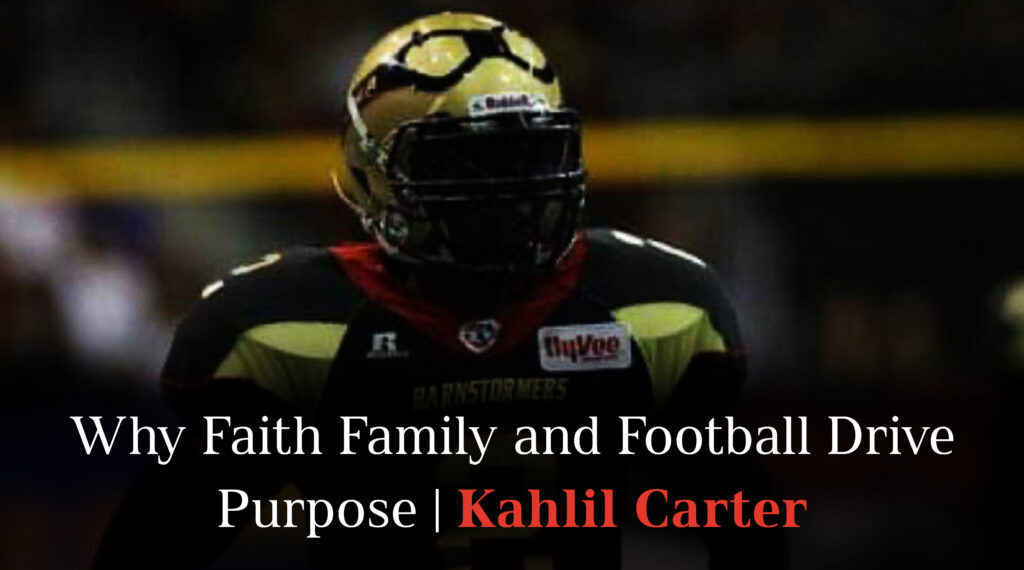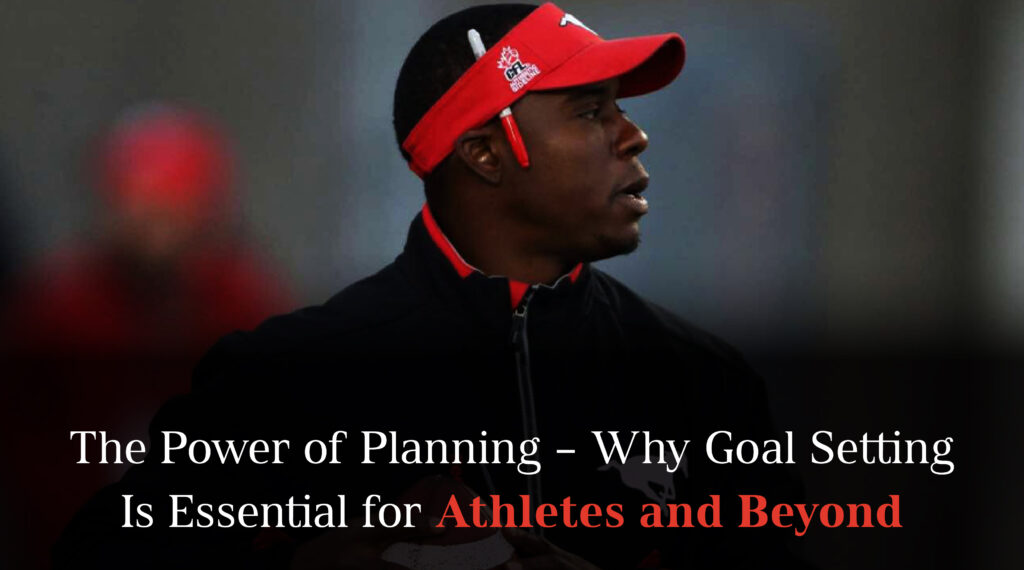Introduction
In today’s fast-paced, results-driven world, leadership is often equated with authority, control, and personal ambition. However, a quieter, more profound approach has emerged as the gold standard for creating lasting impact: servant-leadership. This philosophy, rooted in prioritizing the needs of others over self-interest, is not just a leadership style—it’s a transformative playbook for living a life of purpose and influence. Kahlil Carter, a seasoned football coach and former professional athlete, exemplifies this approach through his remarkable career and personal journey. Known for his strategic brilliance and dedication to mentoring athletes, Carter’s story offers a compelling case for why servant-leadership is essential for impactful living. In this blog, we’ll explore the principles of servant-leadership, its practical applications, and why it stands as the ultimate framework for professionals and individuals striving to leave a meaningful legacy.
The Essence of Servant-Leadership
Servant-leadership, a concept first introduced by Robert K. Greenleaf in 1970, flips traditional leadership paradigms on their head. Rather than leading with a top-down directive, servant-leaders focus on serving their teams, communities, and stakeholders first. They prioritize empowerment, collaboration, and the growth of others, believing that true success stems from lifting those around them. For Kahlil Carter, this philosophy is not just theoretical—it’s a lived experience that has shaped his 12-year coaching career and his time as a professional football player across the NFL, CFL, and Arena Football League.
Carter’s journey reflects the core tenets of servant-leadership: humility, accountability, and a commitment to fostering growth. Whether he was leading the Montreal Alouettes as Defensive Coordinator or mentoring high school athletes at Valley High School, Carter consistently placed the development of his players above personal accolades. His ability to produce 21 All-League players and guide teams to multiple championships—including back-to-back titles in 2011 and 2012—demonstrates that servant-leadership isn’t a soft approach; it’s a powerful strategy for achieving tangible results while building a legacy of integrity.
Why Servant-Leadership Matters in Professional Settings
In corporate and professional environments, the pressure to deliver results can often overshadow the human element of leadership. Yet, studies consistently show that organizations thrive when leaders prioritize their people. A 2021 Gallup report found that teams with highly engaged leaders see 21% greater profitability and 17% higher productivity. Servant-leadership aligns perfectly with this data, as it fosters trust, loyalty, and a shared sense of purpose—key ingredients for sustainable success.
Kahlil Carter’s career offers a real-world example of this principle in action. As a coach, he didn’t just focus on winning games; he invested in the personal and athletic development of his players. His motto, SWAAG (Students Working toward Academic and Athletic Greatness, Serving a Wonderful and Amazing God, and How You Wear Your Confidence and Style), encapsulates his holistic approach. By emphasizing academics alongside athletics, Carter ensured his players were prepared for life beyond the field. This servant-leader mindset earned him the nickname “The People’s Champ” and the respect of peers like Gary Swenson, a veteran coach who praised Carter’s ability to connect with players of all ages and backgrounds.
In a corporate context, this translates to leaders who prioritize employee growth, well-being, and collaboration over micromanagement or self-promotion. Servant-leaders like Carter understand that their role is to build a foundation where others can excel, creating a ripple effect of productivity and innovation. For professionals aiming to make an impact, adopting this approach means shifting from a “me-first” mentality to a “we-first” ethos—a change that pays dividends in morale, retention, and organizational success.
The Personal Impact of Servant-Leadership
Beyond the professional sphere, servant-leadership is a blueprint for living a life of significance. Kahlil Carter’s book, The iN Crowd: Life, Legacy, Leadership, delves into this deeply personal dimension. Reflecting on his journey from gang-ridden streets to the football field and coaching sidelines, Carter emphasizes the importance of serving others as a means of personal restoration. In the chapter “Recovery,” he writes, “The best leaders are those who prioritize serving others rather than seeking personal promotion.” This insight underscores why servant-leadership is essential: it heals the leader as much as it uplifts those they serve.
Carter’s life story is a testament to this truth. After navigating challenges like family struggles, racism, and career transitions, he found renewal by leaning into his faith and committing to the growth of his players and family. His decision to step away from a demanding coaching career to be present for his wife and daughters reflects the servant-leader’s willingness to sacrifice personal ambition for the greater good. This choice didn’t diminish his impact; it amplified it, allowing him to build stronger family bonds and serve his community in new ways, such as his role as a Sports Ministry Director.
For individuals, this approach means embracing vulnerability and accountability—qualities Carter honed through self-reflection and faith. By asking, “What could I have done better?” and seeking reconciliation where needed, he modeled a leadership style that fosters personal growth and resilience. In a world obsessed with instant gratification, servant-leadership offers a counterintuitive yet essential path: fulfillment comes not from what you gain, but from what you give.
Practical Applications of Servant-Leadership
So, how can professionals and individuals incorporate servant-leadership into their daily lives? Kahlil Carter’s career provides actionable insights:
- Prioritize Mentorship: Carter’s success in developing All-League players stemmed from his hands-on approach to coaching. In the workplace, this means investing time in mentoring colleagues or subordinates, sharing knowledge, and celebrating their successes as your own.
- Lead with Empathy: Carter’s ability to relate to players—from 4th graders to CFL professionals—came from understanding their unique challenges. Empathy builds trust, making it a cornerstone of impactful leadership in any setting.
- Embrace Humility: Despite his accolades, Carter never let ego drive his decisions. Humility allows leaders to admit mistakes, seek feedback, and focus on collective goals—qualities that resonate in boardrooms and communities alike.
- Align with Purpose: Carter’s SWAAG philosophy ties his actions to a higher calling. Professionals can adopt this by aligning their work with values that transcend profit, such as service, integrity, or social good.
- Build Relationships: As Carter notes in The iN Crowd, “The game of football is about relationships.” Whether in sports or business, prioritizing authentic connections over transactional interactions creates a foundation for lasting impact.
These principles aren’t just theoretical—they’re proven. Carter’s track record of championships and player development shows that servant-leadership delivers results while cultivating a culture of respect and growth. For professionals, this translates to higher team performance, stronger networks, and a reputation as a leader who truly makes a difference.
The Legacy of Servant-Leadership
The ultimate measure of impactful living is the legacy you leave behind. Kahlil Carter’s career illustrates that servant-leadership isn’t about fleeting victories—it’s about enduring influence. His 50 career interceptions and nine defensive touchdowns as a player are impressive, but his true legacy lies in the lives he’s touched: the players he’s mentored, the communities he’s served, and the family he’s nurtured. His recognition on the Arena Football League’s All-Anniversary Team in 2007 pales in comparison to the testimonials from those who call him a “football savant” and a “genuinely good person.”
In a corporate or personal context, this legacy translates to the systems you build, the people you inspire, and the values you instill. Servant-leaders don’t chase glory; they create environments where others can shine. Carter’s move to Des Moines, Iowa, to serve his family and community reflects this ethos, proving that impactful living isn’t about where you end up, but how you elevate those around you along the way.
Conclusion
Kahlil Carter’s journey—from a standout athlete to a transformative coach—demonstrates why servant-leadership is the ultimate playbook for impactful living. It’s a philosophy that transcends football, offering a roadmap for professionals and individuals to lead with purpose, humility, and service. In a world that often celebrates self-interest, Carter’s story reminds us that true success lies in empowering others. Whether you’re in the C-suite, on the sidelines, or navigating personal challenges, embracing servant-leadership ensures your influence endures. As Carter himself might say, it’s about wearing your confidence and style with a heart for service—because that’s the SWAAG way to live.


